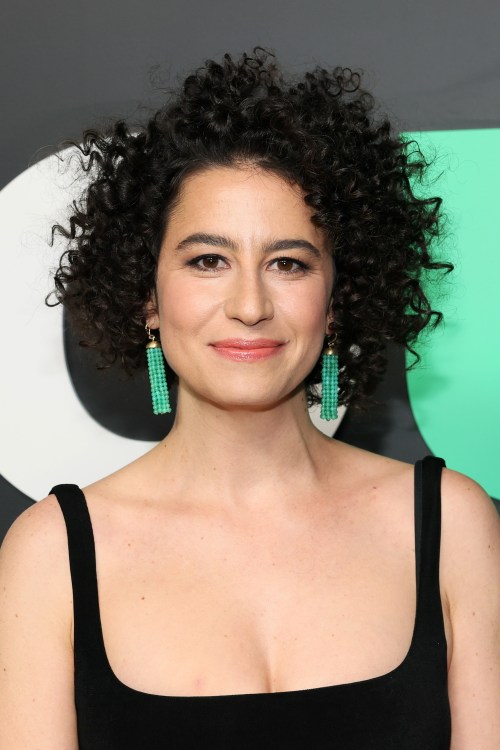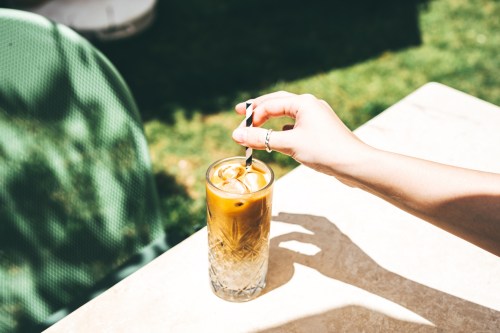Our editors independently select these products. Making a purchase through our links may earn Well+Good a commission
Listen up, everyone: We need to stop thinking about acne as a puberty problem. As any full-fledged adult who’s had a pimple pop up out of nowhere knows all too well, it’s something that can follow you into your 20s, 30s, and beyond. In fact, acne at 40 is a common concern (so, no, you’re not alone), but if you’ve had clear skin for your entire life, it can be confusing to deal with.
Experts in This Article
Daniel Butler, MD, is a board-certified dermatologist based in Arizona.
director of cosmetic and clinical research in dermatology and associate professor of dermatology at Mount Sinai Hospital
board-certified dermatologist in Virginia
board-certified dermatologist at Schweiger Dermatology Group in New York
To get to the bottom of adult acne breakouts, we spoke to board-certified dermatologists Joshua Zeichner, MD, Nava Greenfield, MD, Lily Talakoub, MD, and Daniel Butler, MD. Ahead, they explain what might be causing acne at 40, and what you can do to treat it—because the methods may be totally different than what you learned back in middle school.
Why am I getting acne at 40?
According to Dr. Zeichner, many things including hormonal fluctuations, environmental stress, and diet may contribute to adult acne. However, there’s no “one size fits” all answer as to what acne looks like, and that is true even if you’re over 40. But what sorts of symptoms can you look out for? “It can appear mostly along the jawline, as large red or pink inflammatory bumps on the cheeks, small fine whitish bumps on forehead and cheeks and around nose and mouth, or as very oily skin causing breakouts,” says Dr. Greenfield. Still, each of these different types of pimples may be caused by a different culprit.
Dr. Talakoub says that hormonal fluctuations are a huge part of why you may notice changes in your skin as you get older, noting that women tend to start menopause at some point during their 40s. “When we are young our estrogen is high and protects our skin against acne, but the older we get, especially around menopausal years, the progesterone is higher than the estrogen, and that causes painful cystic adult acne,” she explains. “It’s awful, and hard to get rid of. Most topical medications don’t help.”
The causes of acne at 40
1. It all comes back to hormones
Acne—especially hormonal acne—isn’t just a puberty problem, which is why you may see bumps on the “hormone belt” at some point. “Most commonly, as we age, our estrogen goes down and progesterone increases. This causes deep cystic bumps along the chin and jaw,” explains Dr. Talakoub. So what can you do to treat it? “Usually oral medication is needed,” she explains. “But cutting down soy and dairy in the diet can help.”
2. Consider your makeup and hair products
No matter how old you are, the products you’re putting on your skin will ultimately effect your skin. However, Dr. Talakoub says that pimples caused by your beauty routine will look different from hormonal breakouts. “Acne due to hair serums or makeup will form as small white bumps under the skin,” she explains, which is why it’s important to pay attention to any changes on your skin whenever you’re changing up your routine. “Avoiding hair serums and primers with silicone can help,” she says, explaining that these products may sometimes trap dirt and oils on the face. However, Dr. Talakoub notes that if it doesn’t improve when you swap your products, a dermatologist may need to give you an oral medication.
3. Pay attention to bacteria
Bacteria and breakouts go together like peanut butter and jelly (though admittedly far less appealing). As most of us know, if you don’t wash your face of dirt and grime, you’ll probably end up with a pimple or two, regardless of how old you are. So, be sure to remove your makeup with micellar water, cleansing oil, or good old-fashioned makeup remover, and cleanse, exfoliate, and moisturize regularly.
This Parisian Skincare Brand Is Launching in the United States for the First Time—Here’s What a Derm Wants You to Know

We’re Calling It: Cleansing Balms Are the Face Wash of the Future—Here Are 3 to Add to Your Cart

This Is the One Product That Scarlett Johansson Always Keeps in Her Purse and on Her Bedside Table

Is acne a symptom of perimenopause?
In a word, yes. During perimenopause, estrogen levels tend to decline and androgen levels tend to increase, and these hormonal shifts can make mature skin more susceptible to breakouts. “As hormones change, so does acne,” Dr. Butler says. But! That can mean a few different things. “It’s not always the same change—we sometimes see acne get better during perimenopause, and other times see it get worse—but regardless, the link is the hormonal changes.”
How to treat acne at 40
The good news is: There are topical ingredients that can help treat the symptoms of adult acne—and most of these are the same ones you’ve been seeing in your products since your first-ever pimple popped up. “Spironolactone is great for hormonal acne. Retinoids work well for many types of acne. Antibiotics treat inflammatory acne well and isotretinoin can help in severe cases,” Dr. Greenfield says. Plus, she says, a good face wash and moisturizer can go a long way in treating acne as well. A few other solutions experts recommend:
1. Bring on the benzoyl peroxide
Benzoyl peroxide kills acne-causing bacteria on the skin, which subsequently reduces inflammation. Dr. Zeichner recommends the Neutrogena Rapid Clear Stubborn Acne Daily Leave-On Mask ($12) for an effective, acne-clearing dose of BP.
2. Slather on salicylic acid
Another acne-clearing, oldie-but-goodie, salicylic acid is a chemical exfoliant that helps remove excess oil and exfoliate the dead cells from the surface of the skin. You can incorporate a salicylic acid cleanser into your routine to jumpstart treating acne at the sink. To ensure you’re reaping the most pimple-quashing benefits from the formula, “It should be applied to the skin and allowed to sit while you sing the alphabet to ensure enough contact time before rinsing off,” Dr. Zeichner recommends. For a no-frills formula that won’t break the bank, try the CeraVe Renewing SA Cleanser ($20). You can also opt for a salicylic acid moisturizer to help gently exfoliate. We love this formula from Kiehl’s which also has niacinamide and glycerin so it won’t dry you out.
3. Try topical retinoids
Retinol is basically the holy grail of exfoliation and you can definitely reap the benefits if you’re over 40. “Topical retinoids are vitamin A medications that help reduce inflammation in the skin and prevent cells from sticking together within the pores,” says Dr. Zeichner. “They also have the advantage of stimulating collagen, making them a good option for adults.”
There are a number of different options for topical retinoids on the market (both prescription and OTC-strength), so you’ve got your fair share to choose from, but Dr. Zeichner’s a fan of Altreno. This Rx-grade lotion offers the same effectiveness as tretinoin (the gold standard of retinoids for acne), but in a formulation that goes easier on sensitive skin.
4. Tweak your diet
Sugar and dairy have been known to spike cortisol, which can ultimately show itself on your skin. If you think either ingredient is impacting your skin talk to your doctor or consider moderating them in your diet to see if it helps stave off zits that are being caused by hormones (AKA those cystic suckers on your chin and jawline).
5. Wash your towels
Random fact, but dirty towels happen to be packed with bacteria, and that’s not exactly great for your skin (because, ya know, bacteria causes acne). If you’re using the same towel over and over (and over and over) again to dry your face after you wash it, that could be why your breakouts aren’t going away. Make sure you’re swapping your towels after every few uses, or let your skin air-dry (or use a single-use paper towel) instead of wiping it with a towel.
6. Talk to your derm
If figuring things out on your own isn’t working, it may be time to seek professional help. Head to a board-certified dermatologist, who can help you get to the root of your breakouts and develop a treatment plan that involves products or in-office treatments (like chemical peels or lasers). One thing to remember when looking into treatments: “Everyone’s genetic makeup is different, which is why people develop different types of acne,” says Dr. Zeichner. “Genetics may also explain why certain treatments are more effective on one person than another.”
So, while some trial-and-error at your bathroom sink might land you decent results, sometimes help from an expert can be beneficial. After all, you can’t go wrong with a personalized approach to caring for your skin.
Sign Up for Our Daily Newsletter
Get all the latest in wellness, trends, food, fitness, beauty, and more delivered right to your inbox.
Got it, you've been added to our email list.








